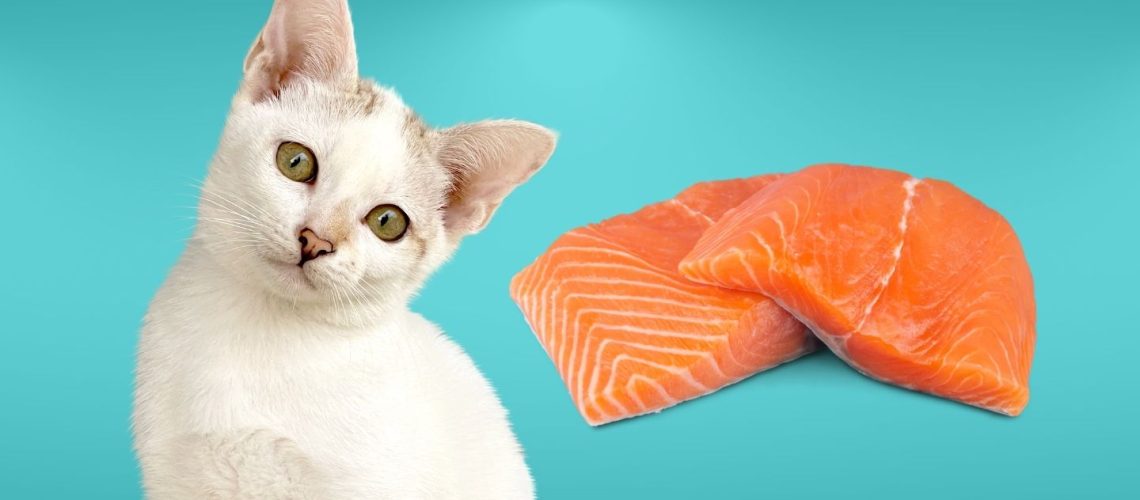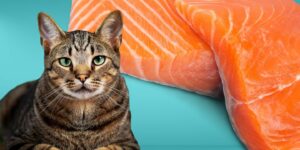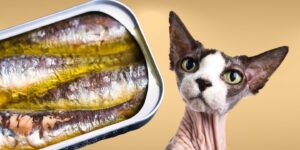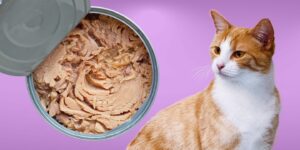The short answer to this question is yes, cats can eat salmon. In fact, salmon can be a healthy and delicious addition to a cat's diet. However, it's important to feed salmon to your cat in moderation and to avoid certain types of salmon that may be harmful to your furry friend.
The Benefits of Feeding Salmon to Cats
Salmon is a rich source of protein, omega-3 fatty acids, and essential vitamins and minerals that can help support a cat's overall health. Protein is an essential part of a cat's diet, as it helps to build and maintain strong muscles, while omega-3 fatty acids can help support healthy skin and a shiny coat.
Benefits for skin and coat health
The omega-3 fatty acids in salmon can provide benefits for your cat's skin and coat health by keeping the skin hydrated and reducing inflammation, leading to less shedding and a shinier coat.
Benefits for the immune system
Salmon is a great source of vitamin B12, which is important for maintaining a healthy nervous system, and vitamin D, which helps to support healthy bones. Other essential nutrients in salmon, including selenium and niacin, help to support a healthy immune system and promote overall wellness in cats.
Preparing and Serving Salmon for Cats
Cooking methods
It's important to cook salmon before feeding it to your cat to eliminate any potential parasites or bacteria. Two popular cooking methods for salmon are:
Baking
Bake the salmon in the oven at 350°F (175°C) for 15-20 minutes, or until the center is no longer translucent and the flesh flakes easily with a fork.
Boiling
Boil the salmon in a pot of water for about 10-15 minutes, or until the center is no longer translucent and the flesh flakes easily with a fork.
Removing bones and skin
Ensure all bones are removed from the salmon before feeding it to your cat, as they may pose a choking hazard. It's also a good idea to remove the skin from the salmon before serving it, as it can contain higher levels of pollutants.
Portion sizes and frequency
A good rule of thumb is to feed your cat about one to two ounces of cooked salmon per day. This amount can be divided into two or smaller meals to make it easier for your cat to digest.
Potential Risks and Side Effects
Allergies to salmon
Some cats may have an allergy to salmon, leading to gastrointestinal upset, itching, or skin issues. If you observe any of these symptoms, stop feeding salmon to your cat and consult with your veterinarian.
Mercury content in salmon
Salmon contains a relatively low level of mercury compared to other fish, but it is still essential to monitor your cat's overall mercury intake. Choosing wild-caught salmon from low-mercury sources can help mitigate these risks.
Parasites and bacterial infections in raw salmon
Raw salmon may contain harmful parasites and bacteria that can lead to serious illness in cats. Always cook salmon before feeding it to your cat to minimize these risks.
Potential for choking on bones
Ensure all bones are removed from the salmon before serving it to your cat to prevent choking hazards.
Alternatives to Fresh Salmon
Canned salmon
Canned salmon can be a convenient alternative to fresh salmon. However, it's essential to choose canned salmon that is low in sodium and free of added flavorings or preservatives.
Salmon oil supplements
Salmon oil supplements can provide the benefits of omega-3 fatty acids without the need to feed your cat whole salmon. Talk to your veterinarian about whether a salmon oil supplement may be suitable for your cat.
Frequently Asked Questions
Can cats eat raw salmon?
No, cats should not eat raw salmon due to the risk of parasites and bacterial infections.
Can cats eat smoked salmon?
It is not recommended to feed cats smoked salmon, as it can be too high in salt and may cause digestive upset.
Can cats eat salmon skin?
It's best to remove the skin before feeding salmon to your cat, as it can contain higher levels of pollutants.
Can kittens eat salmon?
Yes, kittens can eat salmon, but it's essential to introduce it gradually and in small amounts. Consult with your veterinarian before adding salmon to your kitten's diet.
Final Thoughts
In conclusion, salmon can be a healthy and delicious addition to a cat's diet as long as it is fed in moderation and the right types of salmon are chosen. Feeding your cat salmon can provide essential nutrients that can support their overall health and well-being. As always, it's important to consult with your veterinarian before making any changes to your cat's diet.







